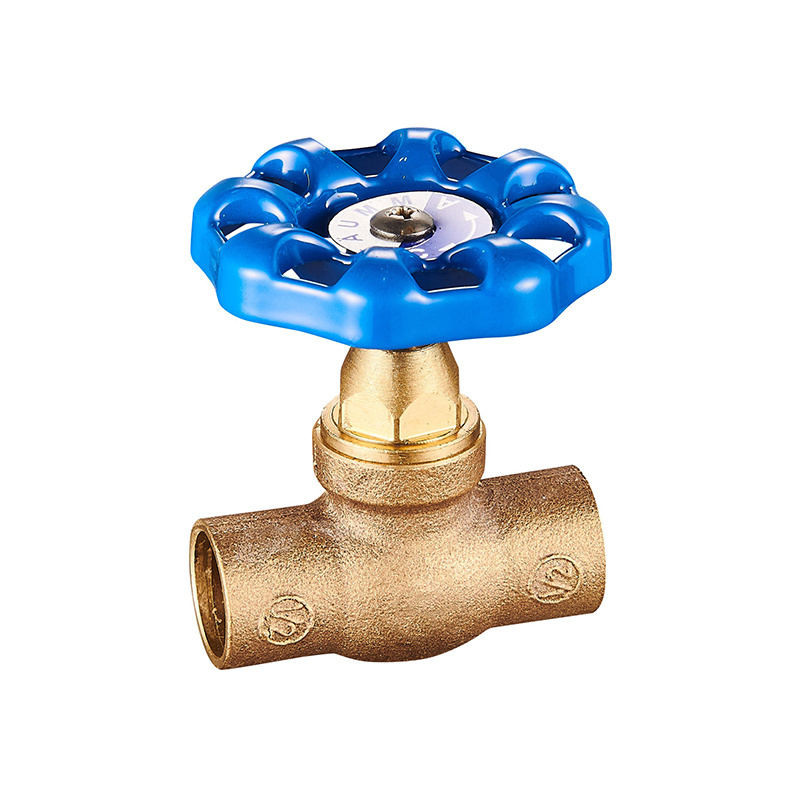News
13
2025
-
06
Understanding the Importance of Brass Valves in Modern Industry: A Comprehensive Exploration
Understanding the Importance of Brass Valves in Modern Industry
Table of Contents
- 1. Introduction to Brass Valves
- 2. What Are Brass Valves?
- 3. Unique Properties of Brass
- 4. Advantages of Using Brass Valves in Industry
- 5. Key Applications of Brass Valves in Modern Industry
- 6. Maintenance and Care for Brass Valves
- 7. The Future of Brass Valves in Industrial Applications
- 8. Frequently Asked Questions (FAQs)
- 9. Conclusion
1. Introduction to Brass Valves
Brass valves play a pivotal role in various industrial systems by controlling the flow of liquids and gases. Their versatility and reliability make them essential components in many mechanical and plumbing applications. Understanding the importance of brass valves is crucial for manufacturers, engineers, and anyone involved in industrial processes. As we explore this topic, we will highlight how these valves contribute to operational efficiency and safety in modern industry.
2. What Are Brass Valves?
Brass valves are mechanical devices made primarily from a copper-zinc alloy known as brass. These valves regulate the flow of fluids within a system by opening, closing, or partially obstructing passageways. They are designed to withstand varied pressure levels and are often used in systems that handle gases, water, oils, and other liquids. The design and functionality of brass valves can vary significantly depending on their intended use, with common types including gate valves, ball valves, and globe valves.
Types of Brass Valves
Different types of brass valves serve unique purposes, including:
- **Gate Valves**: Primarily used for on/off service, providing minimal pressure drop and resistance to flow.
- **Ball Valves**: Known for their quick operation and ability to provide tight sealing, ideal for applications requiring rapid shutoff.
- **Globe Valves**: Suitable for regulating flow and pressure, these valves are often used in applications where throttling is necessary.
3. Unique Properties of Brass
Brass is favored in manufacturing valves due to its unique properties. The following characteristics make brass a superior choice for valve production:
- **Corrosion Resistance**: Brass is inherently resistant to corrosion, which extends the lifespan of valves in various environments.
- **Strength and Durability**: The strength of brass ensures that valves can withstand considerable pressure without failing.
- **Malleability**: Brass can be easily molded into complex shapes, allowing manufacturers to create valves with intricate designs.
- **Thermal Conductivity**: Brass's excellent thermal conductivity allows it to withstand higher temperatures without compromising integrity.
4. Advantages of Using Brass Valves in Industry
Brass valves offer a plethora of advantages, making them a preferred choice across multiple industries. Some key benefits include:
Durability and Longevity
Brass valves are known for their robustness and ability to resist wear and tear, ensuring that they last longer than valves made of other materials. This longevity translates into reduced maintenance costs and fewer replacements.
Cost-Effectiveness
While there may be cheaper alternatives available, the durability and reliability of brass valves often lead to lower overall costs in the long run. Their resistance to corrosion and wear ensures that businesses won’t face unexpected expenses due to valve failures.
Ease of Maintenance
Brass valves are relatively easy to maintain and service, requiring minimal effort to ensure they function optimally. This ease of use contributes to higher operational efficiency in industrial processes.
5. Key Applications of Brass Valves in Modern Industry
Brass valves find applications in various sectors, including:
Water Supply Systems
Brass valves are commonly used in plumbing and water supply systems. Their resistance to corrosion ensures a clean and safe water supply.
Pneumatic Systems
In pneumatic systems, brass valves control the flow of air or gas, ensuring efficient operation and safety.
Heating and Cooling Systems
Brass valves are essential in HVAC systems, regulating the flow of refrigerants and ensuring optimal performance.
Oil and Gas Industry
Brass valves are utilized in oil and gas applications due to their ability to withstand high pressures and resist corrosive substances.
6. Maintenance and Care for Brass Valves
Proper maintenance is essential to maximize the lifespan and performance of brass valves. Regular inspections, cleaning, and timely replacements of worn components can prevent costly downtime.
Regular Inspections
Conducting routine checks for leaks and signs of wear can help identify potential issues early, allowing for proactive maintenance.
Cleaning Techniques
Using appropriate cleaning agents will help remove deposits that can impede the valve's performance. Avoid harsh chemicals that could damage the brass.
7. The Future of Brass Valves in Industrial Applications
As industries evolve, so do the technologies and materials used in valve manufacturing. The future of brass valves looks promising due to ongoing innovations and advancements in manufacturing techniques. Increased demand for energy-efficient and sustainable solutions may lead to further enhancements in brass valve designs.
8. Frequently Asked Questions (FAQs)
Q1: What materials are brass valves made from?
A1: Brass valves are primarily made from a copper-zinc alloy known as brass, which provides excellent corrosion resistance and durability.
Q2: Are brass valves suitable for high-pressure applications?
A2: Yes, brass valves can withstand high-pressure applications, making them ideal for various industrial uses.
Q3: How do I maintain brass valves effectively?
A3: Regular inspections, cleaning with appropriate agents, and timely replacement of worn components contribute to effective maintenance.
Q4: What are the advantages of using brass valves over plastic or steel valves?
A4: Brass valves offer superior durability, corrosion resistance, and thermal conductivity compared to plastic or steel valves, making them a preferred choice for many applications.
Q5: In what industries are brass valves commonly used?
A5: Brass valves are widely used in plumbing, HVAC, oil and gas, and pneumatic systems, among other industries.
9. Conclusion
Brass valves are indispensable components in modern industrial applications, providing reliability, efficiency, and longevity. Their unique properties make them suitable for a wide range of uses, from water supply systems to oil and gas applications. With proper maintenance and care, brass valves can operate effectively for years, making them a cost-effective choice for industries seeking durability and performance. Understanding the importance of brass valves not only helps industry professionals make informed decisions but also enhances the overall efficiency of industrial processes.
faucet brass valve


